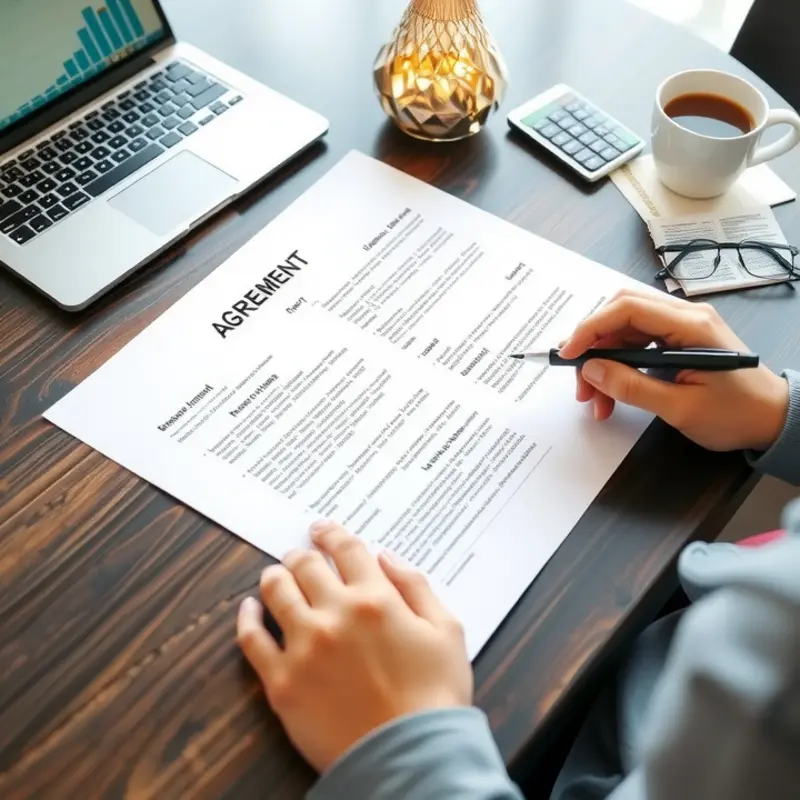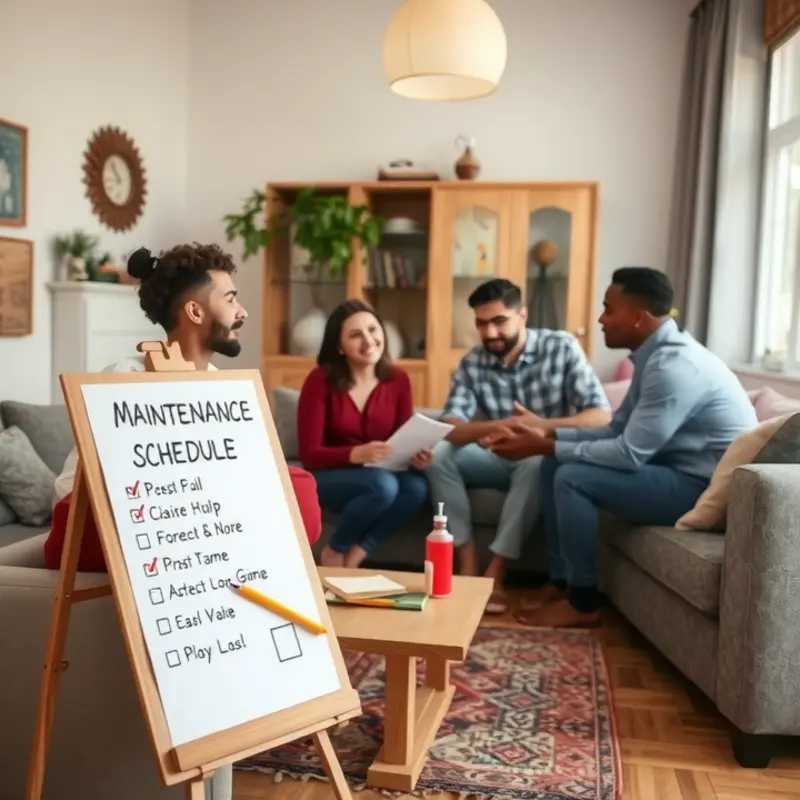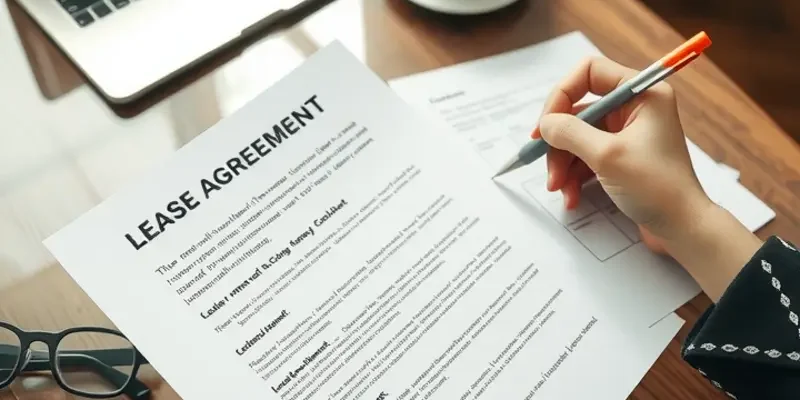Navigating the rental market can feel daunting, especially for young professionals, first-time renters, students, couples, and families. Understanding renter liabilities is crucial for protecting yourself and ensuring a smooth leasing experience. From lease agreements to security deposits and maintenance responsibilities, each element can significantly impact your wallet and peace of mind. By demystifying these aspects, you can empower yourself and make informed decisions that suit your lifestyle and financial situation. This guide will break down essential renter liabilities and offer practical tips tailored for your unique circumstances. Whether you’re renting an apartment near your college, a first home with your partner, or a spacious property for your family, knowing your responsibilities ensures you’re not left in the dark when it comes to lease agreements and tenant rights. Let’s dive deeper into the specific liabilities every renter should be aware of.
Demystifying the Lease Agreement: Key Responsibilities

Signing a lease agreement is a significant commitment, one that comes with numerous responsibilities for a renter. Understanding the intricacies of your lease helps in avoiding future conflicts and managing your new home smoothly.
Start by reading the fine print. Lease agreements are legal documents and can be dense, filled with terminology that can impact your stay. Understanding every clause before you sign can shield you from unforeseen issues. Be particularly attentive to clauses related to fees, maintenance responsibilities, and any specific rules about property use.
One key element in a lease is the security deposit. This is an amount paid upfront and held by the landlord to cover any damages beyond normal wear and tear. Ensure the terms for its use and return are clearly stated. Understanding what constitutes ‘normal wear and tear’ can prevent unnecessary deductions from your deposit. It’s beneficial to document the condition of the property with photos when you move in.
The terms of occupancy are also a critical section of a lease agreement. They typically outline who is permitted to live in the rental unit. If you plan to have a roommate or a significant other move in, ensure your lease allows for this. Unauthorized occupants can lead to fines or even eviction.
Utility responsibilities often vary. Some leases include the cost of utilities like water or gas in the rent, while others require the tenant to set up accounts with utility providers. Clarification on which utilities you are responsible for will aid in budgeting. Speaking of budgeting, this resource may help you in planning your rental expenses effectively.
Maintenance responsibilities can sometimes be confusing. Most leases stipulate that renters are responsible for basic upkeep, such as minor repairs and ensuring the unit is clean. However, major repairs typically fall on the landlord. Understanding where this line is drawn can prevent disputes and ensure timely repairs.
Your lease might include specific rules about pets, prohibiting certain animals or charging extra fees. If you have a pet, check these clauses carefully. Similarly, rules around noise levels, smoking, or decorating might be outlined. Failing to comply can lead to penalties, so it’s essential to understand these boundaries.
Lastly, consider the lease renewal and termination terms. These key sections govern how you can extend or end your lease. They can dictate notice periods and potential penalties, impacting your future plans.
In conclusion, the lease agreement is a roadmap of your responsibilities as a renter. While it might seem daunting at first, understanding each component will empower you to handle your tenancy confidently, ensuring a harmonious living experience.
Understanding Your Rights and Obligations as a Renter

Navigating the landscape of renting requires a clear understanding of your rights and obligations as a tenant. This clarity not only ensures a harmonious relationship with your landlord but also safeguards your living environment.
At the heart of a renter’s obligations is the responsibility for basic maintenance of the property. While landlords are generally required to keep rental units in livable condition, tenants must report any repair needs promptly. Ensure any requests for repairs are documented in writing, which you can refer back to if necessary.
Tenants have significant privacy rights. Landlords must provide reasonable notice—typically 24-48 hours—before entering your rental. This ensures you have adequate time to prepare for any inspection or maintenance activity. Unauthorized entries are breaches of your privacy rights and should be addressed immediately.
One common concern involves the security deposit, a significant sum you’ll want back at the end of your lease. To protect it, document the apartment’s condition through photos or a checklist when you move in. Upon moving out, refer to this documentation when addressing any claims of damage that could jeopardize your deposit. Learn more about budget considerations and managing your rent expenses here.
Unauthorized modifications can quickly become pitfalls for renters. Changes like painting walls, drilling holes, or adding shelves without permission can lead to disputes and even penalties. Always seek your landlord’s written consent before making any alterations to avoid these issues.
The renter’s rights are further bolstered by local laws designed to protect tenants from unfair treatment. It’s crucial to familiarize yourself with these laws in your locality to leverage them if necessary. Resources for renters’ rights vary state by state, so make sure you are informed about specific protections applicable to your location.
Respectful and clear communication with your landlord can preempt many common rental issues. Be proactive in discussing any concerns, and aim to find mutually agreeable solutions. Whether it’s addressing repair needs, scheduling maintenance, or obtaining permission for modifications, maintaining open lines of communication is vital.
In summary, understanding your rights and obligations as a renter empowers you to manage your living space effectively. By staying informed and proactive, you can avoid many of the common challenges that renters face. This knowledge serves not only to protect your rights but also to enhance your overall rental experience.
Final words
Understanding renter liabilities is not just about protecting yourself from financial surprises; it is about building a positive relationship with your landlord and ensuring a smoother rental experience. By grasping your responsibilities, knowing your rights, and effectively communicating with your property manager, you’re not only safeguarding your finances but also enhancing your overall renting experience. Remember, a well-informed renter is a happier, more secure renter. Use this knowledge to navigate your lease and ensure your rented home is a place filled with comfort and joy.









